Guess Who Is My Fav In "The Legend Of Shen Li"

Guess who is my fav in "The Legend of Shen Li"
I'll be honest: I couldn't break through "Shen Li" when it was ongoing because main heroes' dynamics and character traits are absolutely not my cup of tea, but tumblr sold me something like BL with this guy, so, in the drought period in c-dramaland, I decided to give it another try. And guess what? There were absolutely no BL vibes, but the guy turned out to be my type, so I kinda enjoyed watching.
But if I just enjoyed it, there will be no this post, of course. So, let's talk about Mo Fang.

The guy is a son of a bad guy, who was from his infancy raised with the thought that he is amongst enemies and has to avenge his father. Let's stick to this thought: he was groomed to avenge his father in extremely patriarchal society where filial piety is more important that one's life.


But still, even if he was groomed to hate them all as traitors, he was still able to pay attention to kindness and bravery of the main heroine and it made him like her.



So, he grew up with this inner conflict: on the one hand, he is here to avenge his father, it's a very important task in Ancient Chinese setting; on the other hand, to avenge his father he has to betray those around him, who are good people and nice to him.

And, more painfully, he has to betray the love of his life, the Princess he is serving under.


There are two types of unrequited love in cinematography: in Western culture, love turns a villain to the light side and makes them sacrifice themselves for the sake of their love as an act of repent; in Eastern culture, inability to let go of desires leads the character to their doom and everyone accuses them of this weakness post mortem. But this drama combines these two approaches.


Mo Fang's love for the Princess pushes the story forward - him saving his love ruin the bad guys' plan, and his final sacrifice helps the main heroes to win. As if he is a Western villain.
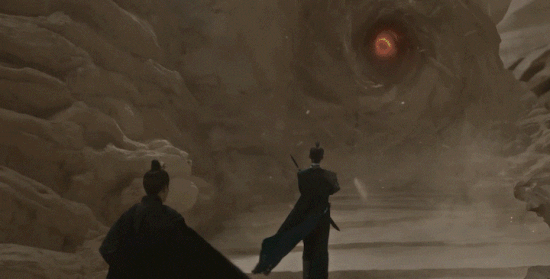

On the other hand, everyone - form the characters to the screen writer - accuses him of being weak and making the wrong choices as if he had free will and was one of those traditional Chinese xianxia villains who made their wrongdoings because of their obsessions. In reality, the guy was groomed for a thousand years to kill them all (and still was not eager to do it), he was possessed by the evil spirits for the half of drama, he wanted to die for the half of the drama in order not to be the weapon of the bad guys (but the bad guys didn't allow him to die). Through the comparison of Sheng Li & her Father and Mo Fang we see that a monster who was raised in love can be a good person, and a normal person who was raised by a villain can fall lowly. And the latter still tried to get out of this abyss.
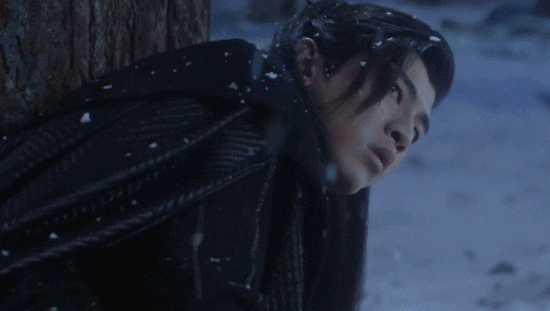


The only free will he has is his choice to fight against teachings of his groomer, to take back the control over his possessed body in order to save the main heroine and to die in order not to make more troubles to the mains. Still, the main heroine says that he is unredeemable and other characters pay absolutely no attention to his fate and don't take into account the bad guy he is possessed with.
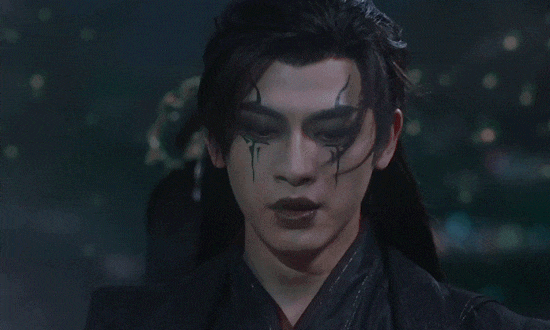
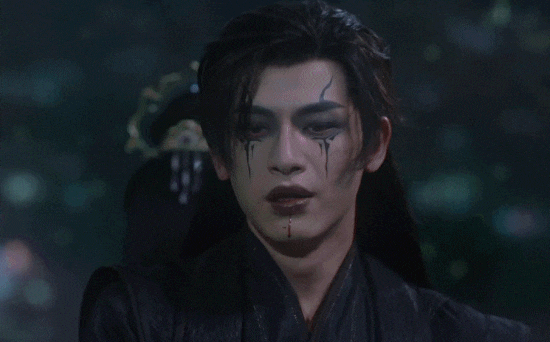
The mains consider his suicide as an act of setting himself free, which is meh. I find this philosophy of "if you are weak, no matter if this weakness is the result of circumstances or it's the prison of your own mind, it's better for you to die" awful. You need to fight your doom and to do impossible, to defy heavens and death itself (and then you become the main hero of the story) or to die trying (and then no one will shred a single tear for you, because only winners count). But I will. I will shred tears. Because everyone deserves the second chance. Thank you, all the dramas that allow it to happen.
More Posts from Sombredancer and Others


This is an English translation of my Russian poem, which you can read here.

Once we watched russian movie “He is a Dragon”, so I drew this.

The portrait of my colleague Andrey
Fu Ling and Chong Zhao: all in one. Part 2 of 2

But all good things come to an end, and the evil demon master (who tried to kill Chong Zhao off so many times, LOL) finds out that Chong Zhao is the shell of the Devil deity he wanted to resurrect all this time, so he accomplishes his mission, and resurrected Devil deity occupies Chong Zhao's body.
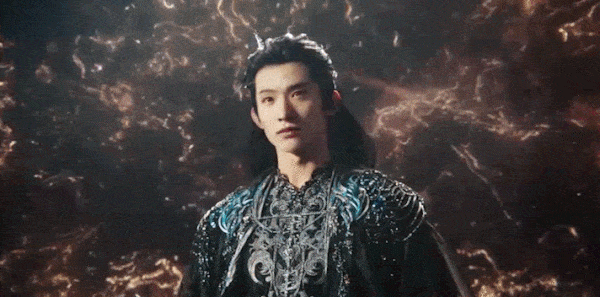
"The Deity is back, bitches!" I don't like that the former dweller of deity's shell in this drama is another person, not a part of deity's soul, because I'm against reproducing by budding while having genitals it cuts off deity's potential of broadening their mental horizons: while fusing their main soul with the "mortal" part of it, they could learn something that can be experienced only by mortals/humans. Although I find this plot decision strange, both in the main heroes' as well as in Mo Li's cases, I understand that otherwise it would be probably impossible to kill Mo Li the way he was killed: it would requite to study Mo Li's character and to remove focus from the main heroes to Mo Li's inner processes, and the luxury of it is affordable only for the main characters. The mechanics of interactions between Chong Zhao and Mo Li looks like the one of the different parts of the same consciousness, though. So, Mo Li is back. He regains control over his shell, and the first thing he sees when he wakes up is a lover of his "mortal" consciousness, lying unconscious on the floor. If I would be a deity, who absolutely doesn't care about the previous life of his "mortal" part of the soul, I would overstep her unconscious body and go further, but look what did this deity do:

Bridal carry [3], as a deity. He says that he didn't kill her because it would upset his future wife Bai Shuo (the main heroine, Fu Ling's mortal sister), but the truth is, he doesn't give a damn about Bai Shuo's unhappiness, Fu Ling doesn't matter in their "let's marry or I'll destroy the whole planet" thing. So, there is something else.
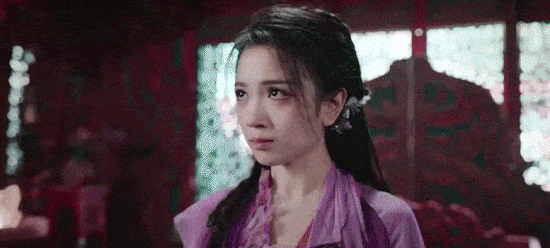
"He is still here, in the furthest corner of my mind. I know everything he knows". Btw, the Devil deity Mo Li is absolutely adorable (in a devilish way). He has nothing in common with Chong Zhao: he is charismatic in a way, infinitely bored with his unlimited power and full of crazy thoughts: for example, to kill everyone (but dude, why? you are the most powerful creature in the world anyways, no one is a threat to you!) or to have a forced wedding with a girl who doesn't like him (and, moreover, he doesn't like her either! What a crazy man!).

"You? Will kill me?"
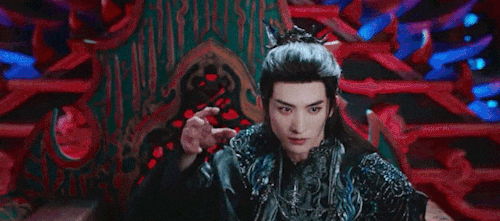
The situation is desperate: Fu Ling is imprisoned in Mo Li's palace, her lover is a tiny part of Mo Li's consciousness now, and Mo Li himself is invincible to the killing attempts of mere humans/demons/whoever. Yet Fu Ling stupidly proceeds attacking him:

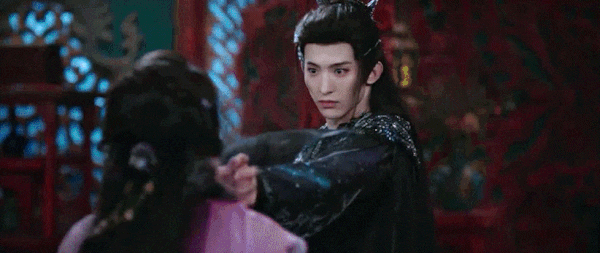
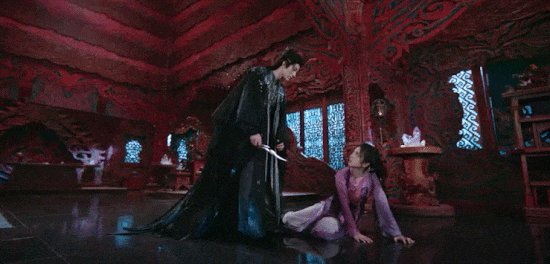
"Keep trying to kill me, I like it".
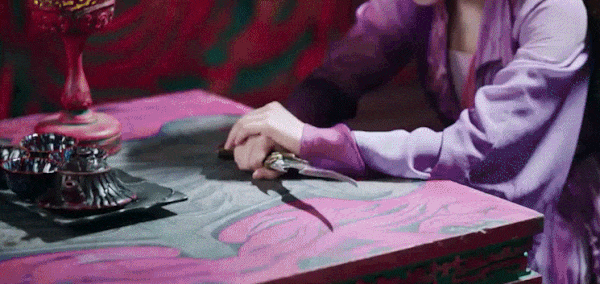
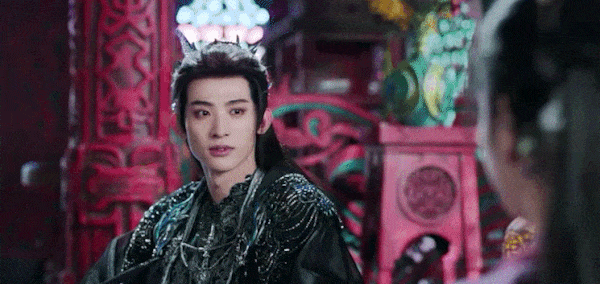
"Why wouldn't you kill immortals and humans for me, as you did it previously, when you were Fu Ling?"
It feels so painfully delicious: she knows her lover is gone, but, at the same time, he is somewhere there, inside of this ethereal, inhuman being. And the deity, in his turn, is slightly interested in her, not romantically, but still. If Mo Li and Chong Zhao were two parts of one consciousness, I would say it is the echoing of Mo Li's other self who loved her. Their feelings could be fused. A deity is too ethereal to fall in love with someone (Xing Yue laughs hysterically at this statement), but his mortal part isn't, so, when Chong Zhao would mingle into Mo Li's soul, he would bring this shade of unfamiliar for deities feelings with him, and it would look like this slightly different attitude towards her.
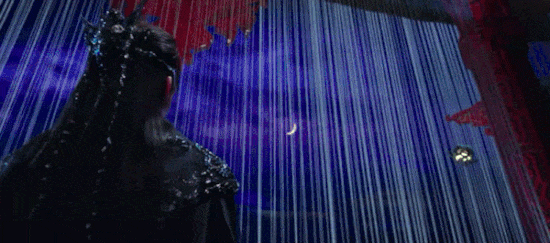
They look at the starry sky [2], Mo Li x Bai Xi version. "This purple moon won't protect any of them".
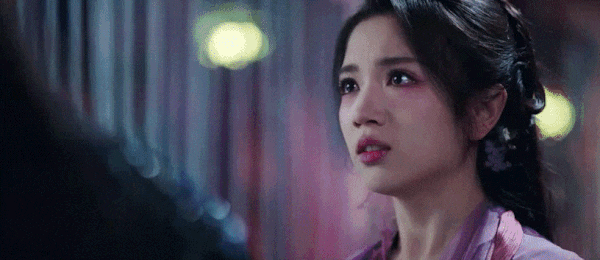
"Tomorrow it all will be over".
And now it's time for their story to be over. She was attracted to him since they had met each other for the first time as children, and he was touched by her attitude towards him, too. She wanted to keep him safe when they met each other anew, and he wanted to keep her safe, too. And later, as he became the Devil deity, he didn't plan to kill her either (can't say the same about her, but her attempts were hopeless and her goal was to free her lover's body from being possessed by the deity). But it happened that he did kill her. Unintentionally. She has shielded her sister from his spear with her own body and died.


The next scene is the most powerful moment of this drama for me. A heartless deity doesn't even understand at first what happened to him: a little piece of his consciousness takes over the body for a moment, fueled by the power of his grief over his deceased lover, and the deity starts crying:
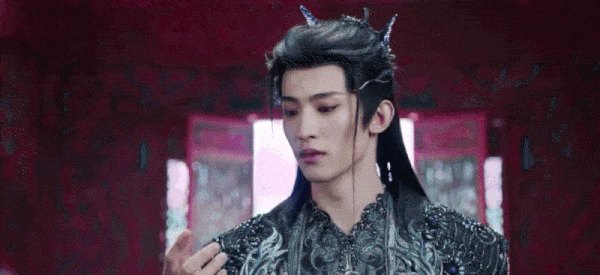
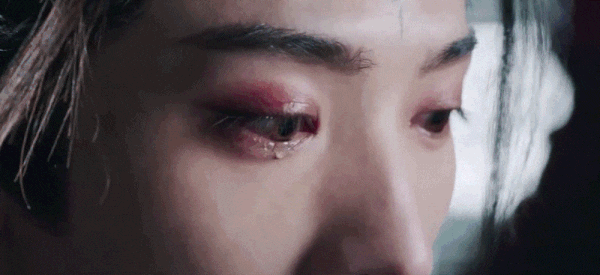
And it is here where the destiny plays out: if Fu Ling would stay alive, no one could ever defeat Mo Li, because the only weapon that can kill him is the long lost Divine Bow of Xing Yue deity. And this bow is Fu Ling's soul.
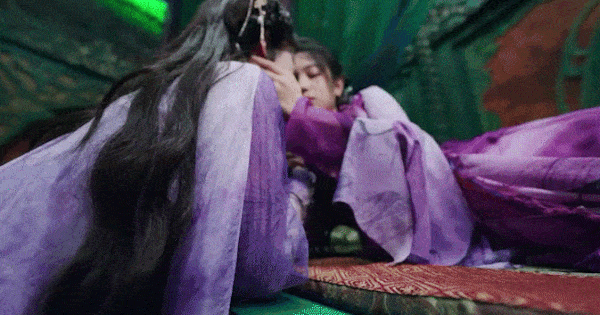
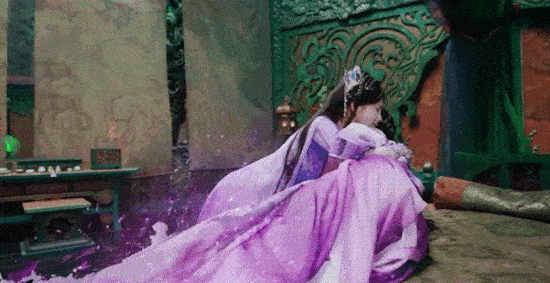
This plot twist was so beautiful! It broke my heart, but, at the same time, left me highly in awe. I like it, when the only reason for a villain to get defeated is his own decisions. The unintentional killing of his lover that allowed his enemies to get the only effective weapon against him is truly marvelous plot decision. She could be the person, who would care about him the most, but became his death. Their fates were intertwined long ago, but it was still up to him: was it "destined to love" or "destined to kill" fate, - and he chose the latter.
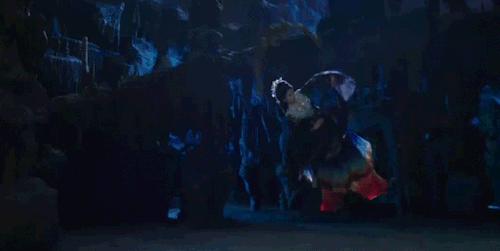
The Divine Bow in use. To summarize: this story deserved to be the main plot line of some drama, and I see the potential of another ending for it if it would be the main plot line with more screen time for the last character arch. But alas, every main character in China should be bleached till they lose all their moral greyness and complexity, so I should accept my fate and proceed enjoying secondary characters, outliving their deaths, fixing their stories in my Mind Palace and not giving up on hope to see someday a good, heart-wrenching story again. Here is Part 1
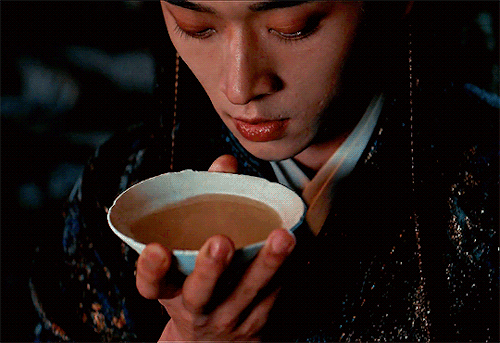
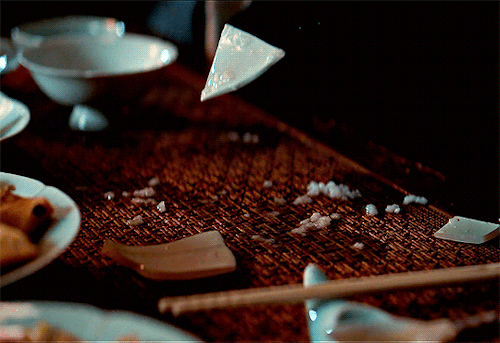

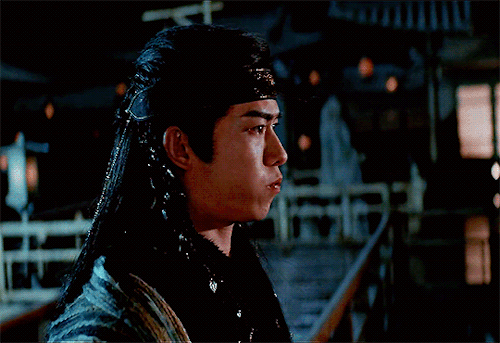

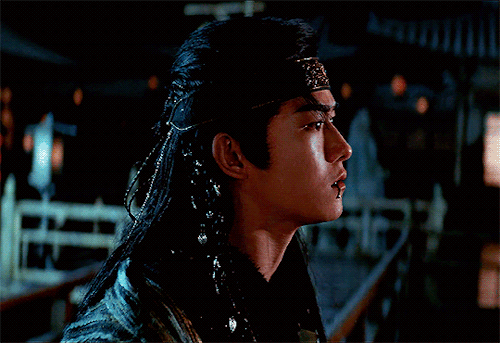

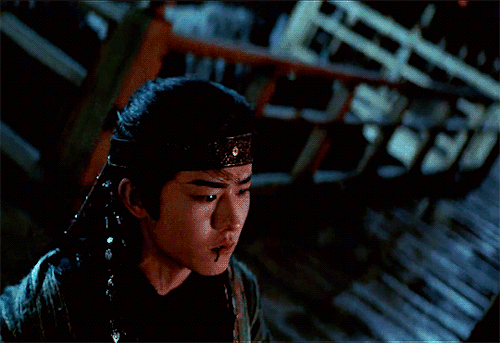

"That porridge was not poisonous."
My journey to you 云之羽 // Episode 13


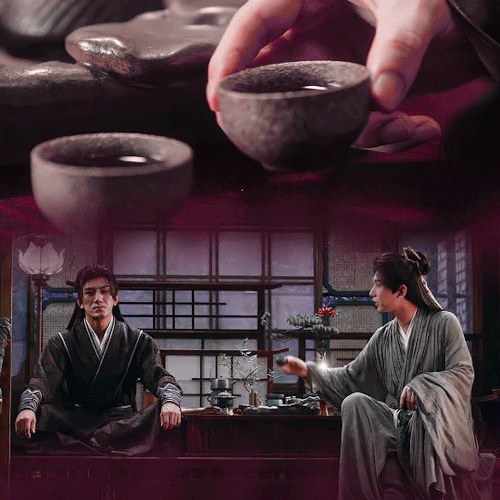



Li Xiang Yi and Di Fei Sheng being each other's nemesis: a brief summary.
How to fight your doom (Pt.1)

Episodes 1-7 I LOVE how this story starts (because the beginning circles up with the end like Ouroboros)! The Girl breaks the Heavenly rules to save her beloved one and changes his fate, so he wouldn`t die from Devil`s shattered primordial spirit attack. Because of that she falls right into the arms (and onto the lips) of the Worst Monster in Three Realms. And CURES him.



She gathers his shattered in 7 pieces soul (it`s very Chinese thing, I often see in novels that immortal beings have 7 souls and 9 spirits or something like that), puts it back into his body and heals even those injuries that were caused by his father long before his "death". This beginning feels right. Their journey starts with curing and IS about curing each other in different ways.


Devil is allpowerful and fearsome but also feral and broken, so the only way for him to accept his chance to be cured is to put him into the situation when he is forced to behave in another, unfamiliar way. So there is a curse that helps him to understand feelings that he`s gonna be able to feel for the first time in 38 thousand years and prevents him from his standart way to solve problems (such as to kill the girl).


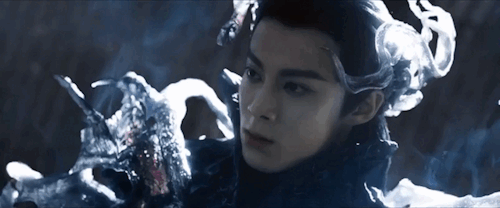

(Btw I LOVE how this show is accurate to the details: if she is injured, the same bruises we can see the whole day on her as on him.)

Forced to take care of Girl`s safety and mood, he (with the great killing intent) learns how to do nice things to others and to be empathic.



But he is not thrown out into the endless sea of feelings without lifebelt, Girl guides him, explains to him what`s going on with him (and he can`t even kill her for that, LOL). And some feelings he needs to learn by his own. (Later we will see that he is an exellent student and embraces his ability to feel and to love fully).

I like how entangled the most part of their relationship look like: he is forced to do nice things to Girl and in process starts to ask himself, why does she feel what she feels and why does he feel something about it. Why does he care if she is happy not to see him again ever in her life? Why does she blush when she speaks about her dream beloved? Why does she drink his flower soup when it tastes awful? We can see even tiny green sprouts of jelousy start to grow in his heart little by little (it`s not so much about romance, but about his warrior`s fame at first). Only by force he could begin to think about it and the curse helps him with that a lot.

On the other hand, Girl is very naïve, she doesn`t understand that Devil is Devil indeed and that he forced to be nice to her, so she supposes that he really likes her. Her soul is injured too: she has been bullied by other fairies, she lives all alone, no one takes her words seriosly, she is quite ordinary, quite invisible. And Devil gives her (against his will at first) opportunity to feel how it is when someone cares. It could be wicked cheating of fate if Devil would not be so fluffy and soft in his soul. But he is. Episode 8 Episodes 9-13 Episodes 13-19 Episodes 20-26 Episodes 27-34
A (scary) fairytale about love for adults — "The Mistress of the Copper Mountain" musical

It's a relatively new Russian musical by Gleb Matveychuk (premiered in 2024), I watched it in flesh this week and felt the urge to tell someone about it. The Mistress of the Copper Mountain (Хозяйка медной горы) is a character of Ural folklore (made up by a writer Pavel Bazhov, though). She is a spirit of Ural Mountains, and, as any other spirit, a trickster rather than a main character of the stories, who is kind to some people and cruel to the other. The base of the musical are three stories of Pavel Bazhov: "The Mistress of the Copper Mountain", "The Malachite Casket" and "The Stone Flower", but the stories are fused and rewritten in a more suitable for a musical way: The Mistress is not a trickster anymore but a tragic character of a story, two other main heroes are a jewelry mason Danila and a daughter of the Mistress, Tanya. The plot of the Bazhov's stories exists only as some homages in the musical's plot, so I'll recap only musical's story:

Stone masons' dance The 19th century, Ural, Russian Empire. The peasants (read: slaves) have to work at copper mines that belong to a cruel and ruthless feudalist. But there appears a problem: an evil spirit that guards the mountains has killed almost all of young mine workers.

The Mistress of the Copper Mountain kills unlucky peasants because they have come to rob her mines. There is an insanely beautiful aria of the Mistress but for some reasons unknown the director of this musical doesn't want to record audio versions of songs, so I've found her aria sung by some other artist (not the one from this musical). I don't like it, but it's better than nothing: Youtube till 3:05.
To help people, a jewelry mason Danila volunteers to go to the mines and to meet an evil spirit. When they meet, Danila asks her to stop massacring peasants because they are slaves and can't do as they please. She asks him in return to spread her warnings to feudalists: they have to leave the mountain be or they will be killed.

Danila keeps his word and gets punishment for his audacity. While getting healed by a forest witch, he learns a story of the Mistress: she was born as a result of non-consensual sex of Slavic Hades and Persephone, unloved and cursed to be unloved till the end of her days. Besides, she has got the Stone Flower, an artefact, one glance on which can reveal all the secrets of the mason craft.
Danila feels pity for the Mistress but also wants to know the secrets of the mason craft. He tries to create his best work but feels that he lacks this sacred knowledge that only the Mistress has:

Danila laments on his lack of knowledge while making a sculpture of the Mistress.
There is a beautiful aria sung by Kirill Gordeev, but I have only a pirate audio: Bilibili, timecode 48:30
As soon as Danila fulfills his promise, the Mistress allows him to ask for reward. Danila asks her to show him the Stone Flower - the secret of the mason craft:

Unexpectant, the mysteries of the Universe reveal to him the perfectness of the Mistress and he falls in love with her:

She isn't happy about it because after one night of love he will turn into stone, but he is eager to sacrifice himself in order to give the unloved semi-goddess a spark of love, so they spend night together:

The Mistress gives birth to a girl and gives her away to people because she thinks her stone heart can't give her daughter enough love. One peasant woman becomes girl's stepmother, names her Tanya and gives her all her love:

Meanwhile, the Mistress lives all alone in her mountains and suffers from lovesickness to her deceased lover:

The aria of the Mistress in this part is here, in amateur version on YouTube, timecode 3:06. It's melodically the same as the duet of Danila and the Mistress before they spend night together, you can hear it in the pirate version on Bilibili, timecode 56:15. Although Tanya is loved by her stepmother, peasants find her strange and avoid her, and even want to hurt her, thinking she is an evil spirit herself. So her mother gives her magical dowry that wakes up her semi-goddess powers:
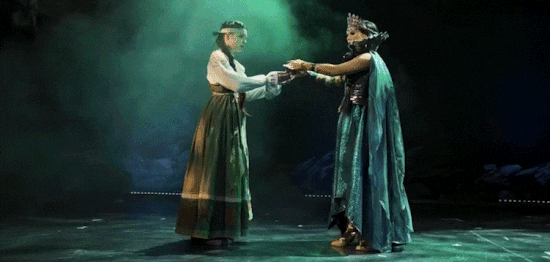
Then the Mistress punishes feudalists and their servants who tortured slaves, partly herself, partly with her daughter's hands.

This guy was eager to kill and torture peasants by feudalist's orders, so it was a pure pleasure to see this maniac get killed.
Tanya is extremely not happy about being used for the bloodshed, so she blames her mum for being a monster and herself for being a monster's daughter. I like this song a lot. And again, only pirate version: bilibili, timecodes 1:14:55 and 1:44:15. But the Mistress explains her about the curse and her stepmother says she has got a kind human heart of her father, so Tanya decides to take mother's curse to herself. Her kind heart will allow her to be benevolent and generous mistress of Ural mountains.

Tanya puts mother's cursed crown on. The dissipated curse releases the Mistress of the Copper Mountain and brings Danila to life. Now they can finally be together. The only one official audio from this musical is the final duet of the Mistress and Danila (Vera Sveshnikova and Kirill Gordeev are singers from the musical):
I liked that it was a pretty feministic story: "the lady in the fridge" is a man, the one who finds something beautiful in the monster and sacrifices himself in the name of love is man as well. It's pretty fresh. The main idea "love defeats everything" is not from Bazhov's stories but it's an immortal idea. And the plot of returning an evil creature to the light side by the power of love is typical Russian and sometimes Asian, so it can be something unusual for a Western viewer (for the sake of variety). At last, let me show you some pirate medley of video scenes from the musical:



P.S.: I also like the aria of the feudalist "Equality is a myth", but even pirate version is of almost unbearable quality. But it's here, Bilibili, timecode 31:00.
My tribute to "The Silmarillion", part 2. Embroidery of Silmarils and their fate. To the Sea One Silmaril was thrown by Maglor in the depths of sea because it had burnt his hands unbearable. You can see here the ocean waves, the star of the House of Fёanor, Maglor's hair, Maglor's hands burnt to the flesh and the Everlasting light of Silmaril in them.


To the Earth The other Silmaril was buried in the core of the Earth with it's host, Maedhros, because of the pain that jewel caused. You can see here the red wave of magma swallowing Maedhros, two white lilies as a symbol of his death, the star of the House of Fёanor, Maedhros' hair, his golden hand instead of missing one, the left hand burnt to the flesh and the Everlasting light of Silmaril shining through his fist.


Arda Envinyanta The third Silmaril is in the hands of his creator, Fёanor. It`s told that at the end of times he will resurrect and break his jewels by himself in order to return the Everlasting Light to Arda Healed. You can see here some blooming flowers of Arda Healed, the star of the House of Fёanor, Fёanor's hair with the flower hairpin (each flower of which represents one of his seven sons), his hands adorned with rings and the Everlasting light of Silmaril above them.


For more entourage photos and close-ups you can visit my AO3:
A poem is written by me, a music is iday - moon , the picture is a set of collages which are made and animated by me. Русскоязычная версия - тут.
-
 sombredancer reblogged this · 2 months ago
sombredancer reblogged this · 2 months ago -
 heyjude456 reblogged this · 2 months ago
heyjude456 reblogged this · 2 months ago -
 circumference-pie liked this · 2 months ago
circumference-pie liked this · 2 months ago -
 rumiroo liked this · 2 months ago
rumiroo liked this · 2 months ago -
 ariamaculata liked this · 2 months ago
ariamaculata liked this · 2 months ago -
 dommingjeffsatur liked this · 2 months ago
dommingjeffsatur liked this · 2 months ago -
 somevariationofgay liked this · 2 months ago
somevariationofgay liked this · 2 months ago -
 somevariationofgay reblogged this · 2 months ago
somevariationofgay reblogged this · 2 months ago -
 sombredancer reblogged this · 2 months ago
sombredancer reblogged this · 2 months ago
